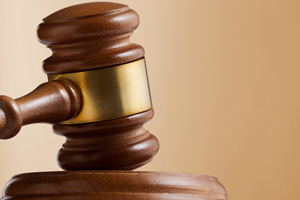Trial set to begin for Martin Shkreli's BigLaw lawyer; ethics experts may testify

Shutterstock.com.
Oral arguments are scheduled for Wednesday in Brooklyn, New York, in the federal trial of Evan Greebel, a former BigLaw lawyer accused of conspiring with convicted ex-drug company CEO Martin Shkreli to commit securities fraud.
Jurors in the trial “will be asked to decide whether Greebel purposefully aided the fraud or was snookered by Shkreli,” according to Bloomberg News.
Greebel was a partner at Katten Muchin Rosenman when he was outside counsel to Retrophin, the publicly traded company that was allegedly defrauded in the scheme. Prosecutors claimed Shrkeli used corporate assets to pay investors who lost money in two of Shkreli’s hedge funds. Shrkeli was convicted on three of eight charges in August. The counts related to lying to hedge fund investors and scheming to control shares of Retrophin.
Greebel is accused of advising Shkreli on how to pay off the investors and how to circumvent trading restrictions so he could maintain control of Retrophin, according to Courthouse News Service.
Potential witnesses for Greebel include two experts on New York ethics, an issue in the case because Greebel is accused of failing to live up to his duty to disclose material facts, the New York Law Journal (sub. req.) reports. One of the experts is New York University law professor Stephen Gillers.
Lawyers for Greebel had contended that the government appeared to be making an argument that a lawyer’s duty to disclose information to a corporate board of directors amounts to a criminal violation. Greebel’s lawyer, Reed Brodsky, argued the government was using ethical guidelines “as swords of criminal liability” and such evidence should be excluded at trial.
The “novel theory of prosecution” is “frightening for the legal profession and for every corporate lawyer in the United States,” Brodsky wrote.
Prosecutors countered that Greebel is charged with agreeing to participate in a scheme to defraud by failing to disclose material facts he had a duty to disclose. There is no reason to give lawyers different treatment than others with fiduciary duties, prosecutors argued.
Greebel is seeking “an extraordinary carve-out from criminal law when the defendant charged with a crime is a lawyer,” the prosecutors said.



